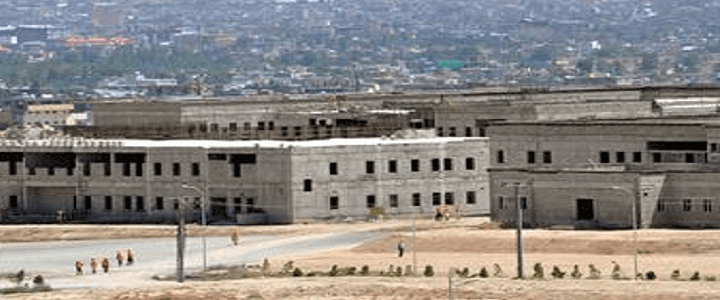The Department of Defense released its quarterly report on contractors deployed to the U.S. Central Command’s area of responsibility, and for the first time, it acknowledges that contractor boots are on the ground in Syria right alongside military ones. The report does not, however, distinguish between Iraq and Syria, but instead counts the two countries together.
In total, more than 47,400 contractors are on the job in the region, most predominantly performing logistics and maintenance tasks. In total, 31.2 percent of contractors supporting Operation Inherent Resolve in Iraq and Syria filled these roles, as did 31.6 percent of those deployed to Operation Freedom’s Sentinel in Afghanistan. Base operations was the next largest contracting category in Iraq and Syria, accounting for 19 percent of the contractors. Security came in second in Afghanistan, at 15.2 percent.
Private Security Contractors Still Matter
Contractors are necessary because deployed uniformed personnel are a precious commodity needed to perform the “inherently governmental functions”only they can do. Since every soldier not manning a base camp gate or guard tower is a soldier available for a more critical roles, it’s no surprise that the DOD report pays special attention to the Afghanistan security contractor numbers.
There are a total of 4,055 contractors providing security for DoD sites there, of which 1,932 were classified as “armed private security contractors.” That’s a fair number, but the job market isn’t as humming as it once was.
Private Security Contractors have gone through a large transformation since the early days of Operation Iraqi Freedom, when former American service members could earn a lucrative living providing armed security for U.S. forces and diplomats. The need to keep costs low, what contracting firms call “downward pressure,” has not left the private security world unscathed.
To keep costs low, private security service providers often recruit overseas in countries like Peru and Nigeria. This is reflected in the DOD report. Of those 1,932 armed security contractors in Afghanistan, only 416 are American citizens. Of the rest, 184 are Afghans and 1,332 — 69 percent — are “third-country nationals.”
State Department Security Contracts
The report doesn’t break-out security contractors in Iraq and Syria, but it does offer a clue as to how many are supporting the State Department’s Worldwide Protective Services II contract. This vehicle is a five-year, $10 billion Indefinite Delivery-Indefinite Quantity contract, an IDIQ, awarded to seven U.S. private security service providers in 2016.
The seven companies compete for individual task orders to provide security at State Department sites in Iraq, Afghanistan, and several other “hot spots.”
“Of the approximately 11,965 contractors supporting U.S. Government operations in Iraq and Syria,” the report reads, “approximately 5,508 contractors are directly supporting DoD-funded contracts.” That leaves 6,457 contractors working for the U.S. who are paid by other government agencies. The State Department has not published the number of security contractors it employs through these task orders, but you can bet that they comprise a good chunk of those non-DoD contractors in Iraq.
But if the ratio of U.S. to Host/Third-Country National security contractor personnel is the same as it is in Afghanistan (and there’s no reason to think it isn’t), I would estimate there are fewer than 1,000 Americans working security for the State Department there right now.
In a future installment of Daily Intel, we’ll examine the kinds of candidates who are getting hired for those precious few American slots on the WPS-2 task orders.


